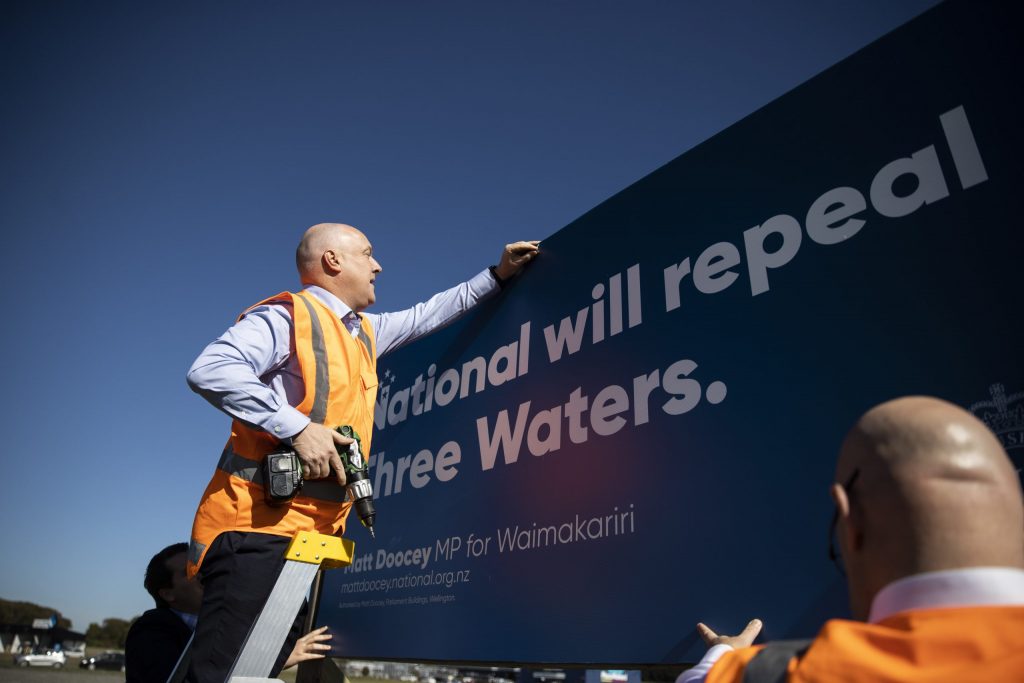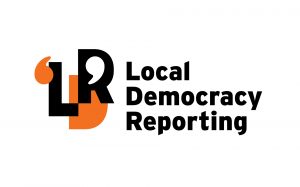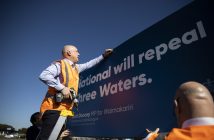As the government moves to roll out new Local Water Done Well legislation by mid-2025 after repealing the previous government’s Three Waters legislation, the future is uncertain for local councils

 Future of Northland’s $1.8 billion Three Waters assets under the spotlight
Future of Northland’s $1.8 billion Three Waters assets under the spotlight
By Susan Botting, Local Democracy Reporter Northland
Northland’s council wastewater, stormwater and drinking water provision for more than 150,000 people had been in the process of shifting off the books of Whangārei District Council (WDC), Far North District Council (WDC) and Kaipara District Council (KDC) and Auckland Council.
Under the previous Government’s plan, it was to move into a giant inter-regional water services organisation called Entity A.
This entity was to be New Zealand’s first cab off the rank and up and running by the middle of next year, in what was originally to be four giant inter-regional mega Three Waters entities nationally.
But the new Government is to disestablish Entity A as part of wiping its predecessor’s Three Waters reform – later renamed Affordable Water reforms – and pass the first new law to replace it by the middle of the year, followed by a second law to bring in its long-term replacement by mid-2025.
The mid-year law change will introduce a bill including streamlined rules for councils to set up council-controlled organisations (CCO)s, if they wish to.
This could see WDC, FNDC and KDC banded together to create a Northland CCO where Three Waters delivery, financial assets and debts are shifted off councils’ books to the CCO.
That would create a larger-scale Three Waters regional group that could then borrow more than councils could individually.
Councils face a deadline to provide their new regional water proposals to the Government, which will intervene if that does not happen.
The second new law will include powers to be used if councils are failing to meet requirements to deliver financially sustainable and safe water services.
WDC is Northland’s strongest-placed council when it comes to its Three Waters infrastructure provision and debt, for more than $633 million-plus in sector assets.
Its ratepayers would potentially need to subsidise Three Waters functions for FNDC and KDC under a single regional CCO, depending on whether the Government contributes financially and how any borrowing for necessary plant upgrades happens.
Local Government Minister Simeon Brown has indicated the Government will not underwrite councils’ new CCOs.
Whangārei Mayor Vince Cocurullo said he supported the new Government’s Three Waters repeals.
However, the council is positioning itself on its part in how any new regional structure for Northland Three Waters provisions shapes up.
“Whangarei’s position has always been that councils who have good assets, ring-fenced funding for Three Waters and are doing a good job should be able to continue as they are.
“They should be allowed to retain ownership and control of water services and responsibility for service delivery,” Cocurullo said in response to the repeal.
“There are some who are not in the same situation as our council and they might want a different set up and it should not be a one size fits all, with minimal local input and no choice.”
Whether Northland local government’s Three Waters assets and debts are on or off councils’ books has been bouncing around since the start of the sector’s reforms.
Councils are in the midst of putting together their next longer-term budgets. Whether Three Waters infrastructure is on or off their books making a big difference to council financial health – and in turn the size of next year’s rates increases.
Cocurullo said WDC looked forward to seeing what new Three Waters legislation looked like.
“In the meantime, we are putting water services back into our (upcoming) Long Term Plan and will be consulting with the public on that in late March/April,” Cocurullo said.
Meanwhile WDC chief executive Simon Weston has been appointed as one of five water specialists nationally on the Government’s new Three Waters reform technical advisory group – made up of finance, infrastructure and local government experts.
The group will advise the Department of Internal Affairs as the new legislation is prepared.
Weston will continue as WDC chief executive whilst being a during that time.
Other group members include New Zealand Infrastructure Commission director Raveen Jaduram, Porirua City Council chief executive Wendy Walker, law firm Chapman Tripp partner Mark Reese and international utilities and infrastructure advisor Castalia managing director Andreas Heuser, who will chair the group.
Castalia carried out research for the more than two dozen councils nationally that fought the previous Government’s Three Waters proposals as part of the breakaway Communities for Local Democracy (C4LD). This cast doubt on the then Government’s calculations around the cost to ratepayers of failing to carry out its reforms.
 South Wairarapa defers Long-Term Plan amid changes
South Wairarapa defers Long-Term Plan amid changes
By Emily Ireland, Local Democracy Reporter Wairarapa
South Wairarapa District Council [SWDC] will defer its Long-Term Plan [LTP] to next year as it awaits a raft of policy changes from the new Government.
Instead, it will adopt an “enhanced” annual plan for 2024-25.
The move would be enabled by the Water Services Acts Repeal Bill, which is going through Parliament and is awaiting approval.
The Bill includes several transitional arrangements for councils to defer their 2024-34 LTPs because of considerable unknowns regarding the future of water reform.
The controversial Three Water reforms were recently repealed by the Government, which is now working on new legislation due to be rolled out by mid-2025.
Long-serving councillor Colin Olds said the deferral would ensure the community had more certainty around future government changes.
“Understanding what roading and water will look like will enable the development of a sound Long-Term Plan,” he said.
Meanwhile, Carterton and Masterton councils will go ahead with adopting a LTP.
At Wednesday’s council meeting, SWDC chief executive Janice Smith said taking an “enhanced” annual plan approach was beneficial and she “struggled to find any fish hooks”.
It did however mean the council would be adopting an LTP in June 2025, “with an election hot on the heels of that”.
She said the council had also taken legal advice around the recent rating review, which confirmed that this did not trigger the need for an LTP amendment.
The existing LTP would remain in force in the meantime.
An SWDC spokesperson said the advantages of the deferment included the completion of the Featherston Masterplan to “firm up direction on development options in the out years of the LTP”, the confirmation of the next three years of NZTA roading funding, and time to further develop its asset management plans.
“Activities included in the Enhanced Annual Plan for 2024/25 would help inform the next LTP and offer more insight into the future options,” the spokesperson said.
“[It] will also allow us to consult and engage South Wairarapa communities with more certainty about the outcomes and budgets we will be proposing for the long term.”
Community consultation for the SWDC Enhanced Annual Plan for 2024/25 will begin in April, which will help determine the levels of services and the budget for the 2024/25 year.
A nine-year 2025-34 LTP will be produced next year.
The potential to defer LTPs was discussed at Carterton District Council’s [CDC] Risk and Assurance meeting on Wednesday.
But CDC chief executive Geoff Hamilton said there was “very little difference” between having an LTP and an enhanced annual plan.
Both would require an infrastructure plan and an asset management plan that would need to be consulted on, he said.
“In our opinion, the right thing to do — we’re 80 per cent the way through the LTP now, probably closer to 90pc — we should just push on and do it.”
Members of the committee were more concerned about the impact of delayed rating valuations from Quotable Value.
The council would not receive them in time for the consultation document to be adopted, which Hamilton said “is a really big risk for our community”.
“If those values change materially between the [consultation document and the LTP], there will be a material change in the rate impact for those households.”
Mayor Ron Mark agreed and said he didn’t want to “be hitting people with a consultation document that says this is where we are going to be … and when we come to the final adoption in June, suddenly it’s all different”.
The CDC Risk and Assurance Committee agreed to recommend to council “to proceed with an unaudited consultation document but to continue to engage with Audit NZ on the assurance of the consultation material” for the LTP.
This is because the confirmed audit dates would result in a tight timeframe which the council was not satisfied with.
This move has also been enabled by the provisions in the legislation passing through Parliament.
 Canterbury councils look to local solutions for water reforms
Canterbury councils look to local solutions for water reforms
By David Hill, Local Democracy Reporter North Canterbury
North Canterbury’s mayors are seeking a local solution after the Government abolished the controversial Three Waters legislation.
Waimakariri Mayor Dan Gordon said retaining local ownership has always been the goal, while exploring options to work with neighbouring councils.
‘‘At this stage we’re celebrating Three Waters remaining in community ownership ahead of the new bill being introduced to Parliament later this year,” Gordon said.
‘‘If the legislation mirrors the policy direction signalled by the Government, it provides councils options to either go it alone or work together in a council-controlled organisation or similar model.
‘‘We will be having informal discussions along these lines with our local government neighbours while this takes place, but essentially we will be waiting to see what the legislation says.”
Under the former Government, 10 large independent entities would have been set up to manage drinking, waste, and storm water services, with the aim of improving water infrastructure.
The new government plans to set up an advisory board to work on the replacement legislation, which would allow councils to voluntarily form their own groupings and council-controlled organisations.
Gordon said the new policy mirrored the model put forward by Communities 4 Local Democracy (C4LD), which represents around 30 councils and campaigned against Three Water reforms.
He said no decision would be made without consulting with the community, which is likely to take place later this year.
The Waimakariri, Hurunui and Kaikōura district councils were all C4LD members.
Hurunui Mayor Marie Black said the Canterbury Mayoral Forum had been advocating for a regional approach to managing Three Waters for several years.
‘‘It was a proposal the Canterbury councils put to the previous Government early in the piece, but it was rejected.
‘‘We see it as the best outcome to achieve the scope and scale needed.’’
Kaikōura Mayor Craig Mackle said the repeal of the legislation is an opportunity ‘‘to start again’’.
‘‘We have a lot of work to do and the mayors need to get together to work out what is best for our communities and our region.’’
Mr Mackle and Mrs Black said there is already ‘‘a synergy between Kaikōura and Hurunui’’, with a number of shared services already in place including IT services, Civil Defence and building staff.
And there is ‘‘pretty tight network’’ across the three North Canterbury councils, including Waimakariri, they said.
The Waimakariri District Council also has a close relationship with its Greater Christchurch partners, the Christchurch City Council and the Selwyn District Council.
LDR is local body journalism co-funded by RNZ and NZ On Air.








